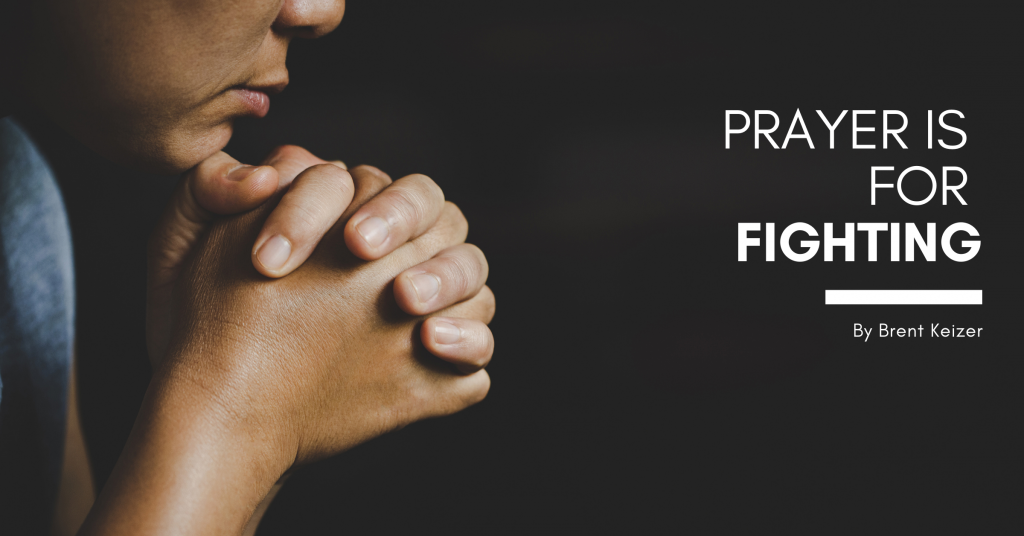
Meekness dictates I must yield always.
In prayer I don’t yield an inch.
Prayer is not about yielding; it’s about contending. It’s about fighting for what I desire according to what God also desires.
Take these examples of prayer that are not a patient acceptance to the outcome of certain events, but a fight against them:
Elijah, for instance, virtually lays the blame at the feet of God for the death of the widow’s son: “Why have you done this terrible thing?” He questions the Lord God (1 Kings 17:20).
Daniel commands God emphatically (not at all the prayer of a man giving up) “Lord, listen! Lord, forgive! Lord, hear and act!” (Daniel 9:19).
Moses, the “meekest man then living,” (Numbers 12:3) challenges God in prayer and leads God to “repent” (Exodus 32:14) of His desire to destroy Israel.
Even the prayer in the garden offered by Jesus, typically thought of as a model prayer of being yielded and compliant, is not a yielding, but a mighty conquering prayer.
The writer of Hebrews provides the key to this most mysterious moment of intercession. Christ, we are assured, was heard and spared from death by his “fervent cries” offered to “the one who could save Him from death” (Hebrews 5:7).
Jesus’ soul in the garden, he tells the disciples, “is consumed with sorrow to the point of death” (Mark 14:34). He was ready to die in the garden unless the Father had saved Him. To die in the garden would have failed to achieve God’s will. Christ must die on a cross and fulfill both His own will and the will of the Father—that the Son of Man be lifted up like the bronze serpent for all to see (John 3:14). The fact that he made it to the cross before expiring was through the power of God.
Charles Finney puts forth the same claim, “Here Christ plainly intimates, that he did not pray to escape the death to which he was appointed, and for which he had come to that hour. But it may be asked, against what did Jesus pray in the garden? I reply, against being overcome by the agony of his soul, and crushed to death before he came to the cross.”
The popular notion that praying is yielding has ironically left Christians in very unyielded attitudes and daily modes of living. We think we will find no victory in prayer, so we fight for it outside the prayer closet by our own means. We try to elbow our way to the table. No mindset could be more worldly—the world doesn’t pray and, therefore, must fight for its rights; the Church ought to fight in the arena of prayer, so why then does the Church contend where it should not?
When we have entered into our closets armed for battle and armed with the desire to not just lay down and let things die around us, when we go to pray and we “rage against the dying of the light” as the famed poet Dylan Thomas wrote, when we are ferocious in prayer, then and only then, will we be meek.
Let us be like David who contended mightily for the life of his child. Upon hearing the news that the child did die, David arises, goes to the temple, and worships (2 Samuel 12:20). What could explain such meekness except the mighty praying of the mighty man of God? His prayer and his praying was always a contending and a fight. May ours always be as well.
-Brent Keizer, Colorado State University Alumnus
